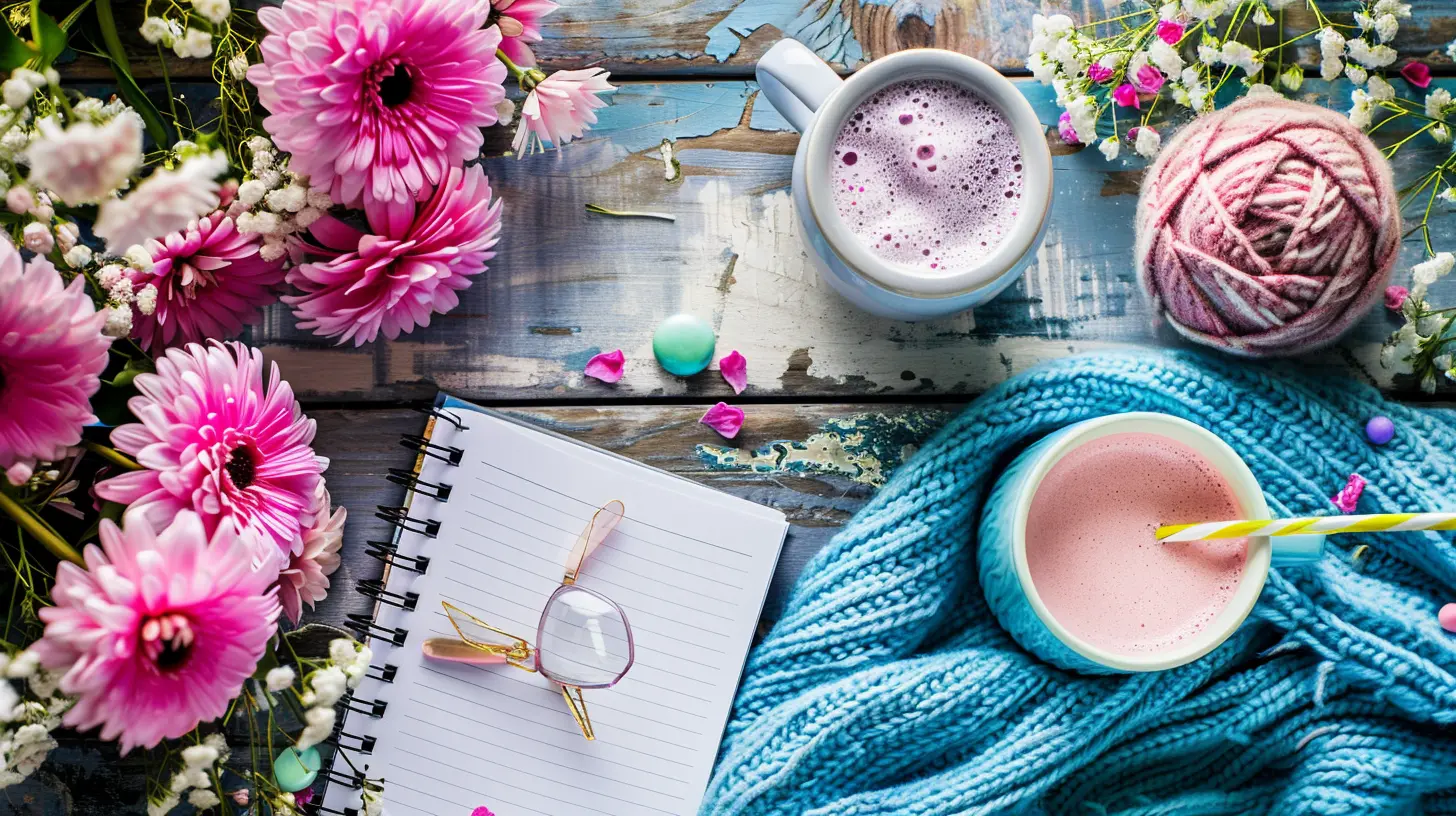Mental Health Check-ins: How to Regularly Assess Your Wellbeing
11 November 2025
Okay, let’s be real. We all stroll into doctor’s offices at the first sign of a sore throat like we might have contracted the plague, but when our brains start flashing all kinds of red flags like a disco light, we just... ignore it? Slap a motivational quote on it and keep scrolling? Yeah, not exactly the ideal maintenance plan for that lovely mushy organ upstairs.
Welcome to the world of mental health check-ins – the unsung hero of self-care, the toothbrush for your soul, and the thing you probably haven't done since that one therapist appointment in 2019. But hey, no judgment – we’re diving into how to make mental health check-ins part of your regular routine without it feeling like a full-time job or therapy session with your group chat.

What is a Mental Health Check-in Anyway?
Think of a mental health check-in as asking your brain, "Yo, you good?" But in a slightly more structured way.It's a moment—just a moment—to pause and notice how you're really doing. Like, not the "I'm fine!" you say to everyone including your barista—actual inner clarity. Emotions, energy, sleep, motivation, stress level... the whole mental soup.
You're essentially playing detective with your mental wellbeing. Sherlock Holmes meets Instagram therapy, minus the pipe (unless it’s lavender essential oil, in which case, puff away).

Why Mental Health Check-ins Are Not Just for People on the Brink
Here’s the biggest plot twist of adulting: You don’t have to be falling apart to care about your mental health.Mental health isn’t binary – you’re not either 100% okay or sobbing under your desk. There’s a whole spectrum of “meh,” “not bad,” “could be worse,” or “I want to yeet myself into the void but respectfully.” And every point on that spectrum deserves attention.
Mental health check-ins help you:
- Spot patterns before they become problems
- Manage stress like a boss
- Understand your emotional triggers (Hi, family dinners!)
- Show up better for yourself and others
- Avoid emotional burnout that feels like being steamrolled by life
In short: It’s preventative care for your brain, which—surprise!—is just as important as flossing. (And let's be honest, you probably skip that too.)

Signs You Desperately Need a Mental Check-in (But You're Probably Ignoring Them)
Let’s play a game called: “Is It Burnout or Just Vibes?” Spoiler: If you're feeling any of this, a check-in is probably overdue.- You're constantly tired, even after sleeping nine hours (go you!)
- You snap at people for breathing too loud
- You're running on caffeine, sarcasm, and existential dread
- Your to-do list gives you anxiety paralysis
- You zone out while driving and end up at Taco Bell instead of work (oops)
- You cry over TikToks involving dogs or undercooked chicken
If even one of those made you say "ouch, called out," you might want to start making mental health check-ins your new BFF.

How to Start Doing Mental Health Check-ins Without Making It Weird
Alright, now that we've established these are necessary, how do we make it happen? Step one: Don’t overthink it. You don’t need a journal written on parchment paper or a Pinterest-worthy bullet list (unless that brings you joy).Here’s how to do it without spiraling:
1. Set a Time – Seriously, Put It in Your Calendar
If it's not on your calendar, does it even exist? Nope.Pick a time that works for you—daily, twice a week, Sundays while doom scrolling, whatever. Just make it consistent. Treat it like brushing your teeth, but for your soul.
Bonus points if you do it at the same time you pet your cat, sip your tea, or stare out the window like a Victorian widow.
2. Ask Yourself the Right Questions
Not sure what to ask? You don’t need to channel Freud, just try these:- How am I really feeling today?
- What's been stressing me out lately?
- What’s giving me energy? What’s draining it?
- How’s my sleep, appetite, and focus?
- Have I laughed recently? Like, actually laughed?
- Is there something I need that I’m pretending I don’t?
Dig a little deeper than “good” or “bad.” Find your internal weather report: Is it foggy? Thunderstorms? Slightly overcast with a chance of rage?
3. Use a Mood Tracker or Journal (No, It’s Not Just for Teens)
Listen, a journal doesn’t need glitter pens and heartbreak poetry. You can keep it simple. Write one sentence a day. Track your mood with a color. Even apps like Daylio or Moodnotes exist for people who want low-effort, high-insight check-ins.Not into writing? Talk to yourself. No joke. Record voice memos. Talk to your mirror. Pretend you're on a podcast. Get weird with it.
4. Recognize the Patterns
After a week or two of check-ins, you’ll start seeing some spicy patterns. Like how every Monday post-meeting with your boss, you spiral into an emotional black hole. Or how journaling right before bed gives you better sleep.Patterns help you know when to step back, set boundaries, or put yourself in a metaphorical (or literal) timeout.
5. Take Action (Small Ones Count)
Check-ins are cool, but if you don’t do anything with the info you gather, it’s like checking the weather and not bringing an umbrella during a storm.Notice you’re stressed and burned out? Take a break, even if it’s just 10 minutes of lying on the floor staring at the ceiling (therapeutic, I swear). Feeling low on connection? Call a friend, or at least send a meme. Overwhelmed? Make a list and cut it in half.
Mental health care is a buffet, not a five-course meal. Pick what works for you.
Make Check-ins a Habit, Not a Crisis Response
Let’s shift the vibe from "emotional fire drill" to "daily tune-up."The same way you don’t wait for your car to explode before an oil change (ideally), don’t wait until you’re sobbing into your cereal to ask how you’re doing. Regular check-ins build emotional resilience, self-awareness, and self-compassion.
And trust me, the more you do it, the less awkward it becomes. Eventually, it'll feel as natural as scrolling Instagram while pretending to listen during Zoom meetings.
When to Call in Reinforcements (aka Therapy Isn’t Defeat)
Sometimes, despite our best self-care efforts, things still feel heavy. Like, weighted-blanket-on-your-soul heavy. That’s when it's time to tag in a professional. And that’s not a sign of failure—it’s a glow-up move, honestly.Therapists, counselors, support groups, even mental health hotlines—these are resources, not last resorts. If your internal check-ins keep lighting up red flags you can’t unpack alone, it’s okay (and smart) to get help.
Because news flash: You’re not weak. You're wildly self-aware. And that's a superpower.
Quick Tips to Level Up Your Mental Health Check-in Routine
If you’re looking to become the Beyoncé of emotional intelligence (goals), here are a few pro-level tips:- Set reminders with gentle words like “Hey bestie, how’s your brain?”
- Pair your check-in with a habit you already have (e.g., coffee time = mental health time)
- Use scale ratings (e.g., stress today: 1-10) to get a snapshot
- Share your check-ins with a trusted pal or therapist
- Keep it judgment-free – no shame spirals, please
- Reward yourself after tough check-ins (ice cream is always a vibe)
The Bottom Line – Be the Friend You Need
Look, life is wild. It throws curveballs, passive-aggressive emails, delayed flights, and internal crises at us daily. The least we can do is check in with the one person who really has to deal with all of it — ourselves.Mental health check-ins are like emotional mirrors. They reflect how we're really doing, not how we think we should be doing. And the more often we look, the easier it becomes to recognize when we're thriving vs just surviving.
So, start asking. Start listening. Care about your mental health like it's a plant you can’t kill (but even if you’re not the plant mom type, that’s okay too).
Now go ahead. Ask yourself: "How am I, really?"
And maybe this time… mean it.
all images in this post were generated using AI tools
Category:
Mental WellnessAuthor:

Sophia Wyatt
Discussion
rate this article
1 comments
Molly McCune
Great article! Regular mental health check-ins are essential for self-awareness and overall wellbeing. Finding simple ways to assess our mental state can lead to proactive steps in maintaining balance and resilience in our daily lives.
November 17, 2025 at 5:33 AM

Sophia Wyatt
Thank you for your thoughtful comment! I completely agree—regular mental health check-ins are vital for fostering self-awareness and resilience.


